Imagine, if you can, a woman living in the wilderness of Alaska at a place so remote that the only possible way to get there is by bush plane. Imagine this place and you would probably conjure up images of bleak glaciers and dark evergreen forests, of glaciated braided rivers and of tundra vast enough to boggle the mind. And your conjuring would be, up to a certain point, quite accurate for the wilderness of the Wrangall St. Elias National Park is all of that.

But this woman of the wilderness is also a gardener which means that in addition to the unbelievable expanse of wild, achingly beautiful land, there is also a tiny spot of gentle beauty that feels like home.
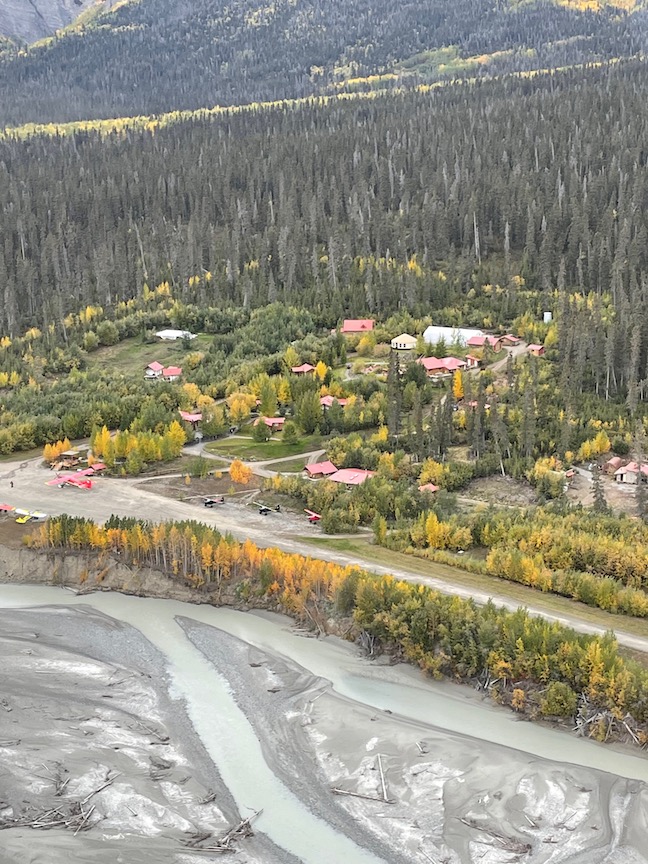
Donna Claus is a remarkable woman. She and her husband, Paul, an Alaska bush pilot and climber of great renown, created a lodge in the wilderness so that ordinary people, like me, a soft and green product of the sweet and sultry American South, could come and safely experience for a few days what wilderness really feels like. Visiting with Donna and talking to her was a stark and wonderful reminder of why we garden.
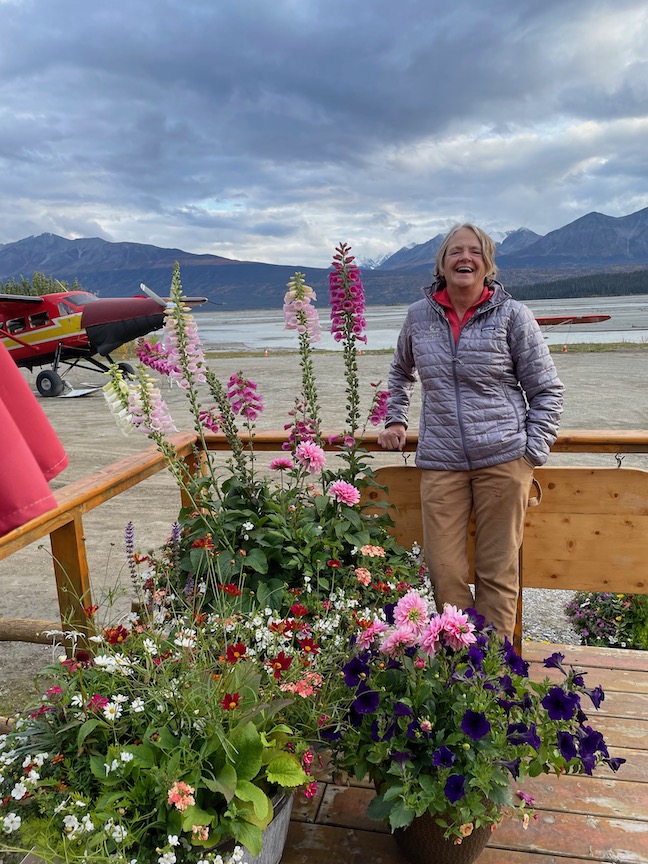
Before you begin to pigeonhole Donna as just a “friendly innkeeper” let me add a few nuggets of information that I mined from her in the precious few days I knew her. She’s a pilot. And a climber. And explorer. I don’t even know a fraction of Donna’s life adventures but when I say this is a tough woman, I say it with a great degree of certainty.
When I sat and talked with Donna, we quickly found the common ground of interest in gardening. I asked her why she gardened when there was so much natural beauty around and she answered, “The wilderness can be overwhelming. You fly hundreds of miles and see all kinds of things every day but the sheer magnitude of it all can make you feel pretty insignificant. So when the guests get back from a day of flying and hiking on glaciers, I want them to feel welcomed and at home.”
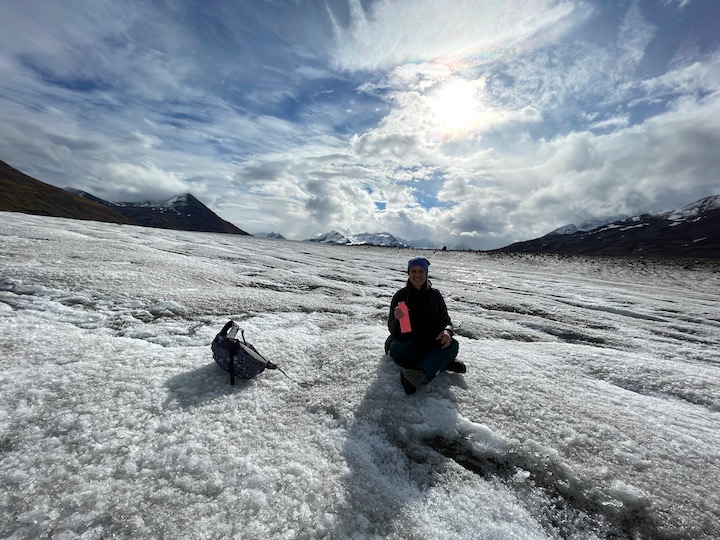
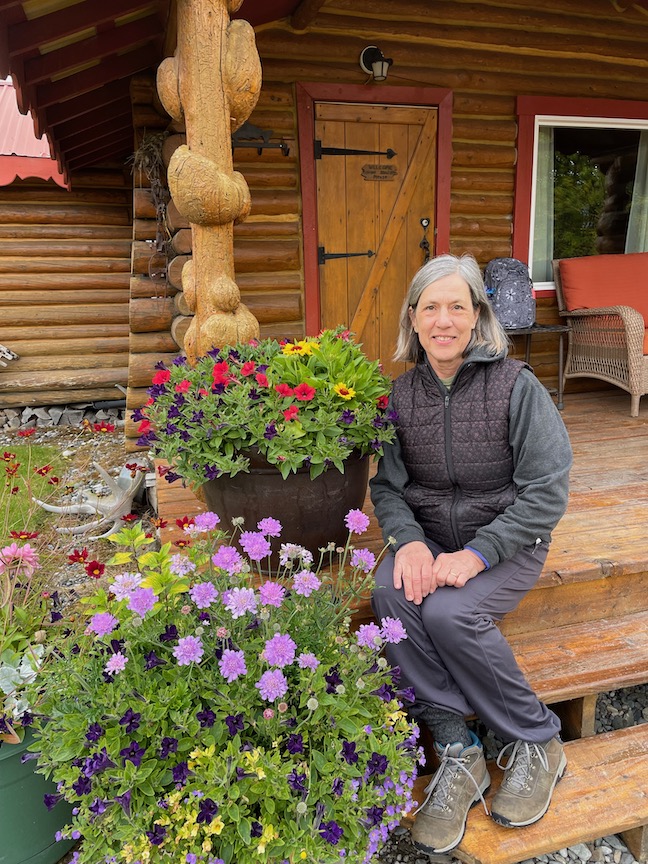
And walking up to the lodge (Called Ultima Thule, which means “beyond the end of the known world”) after a day of adventuring in the wild, I realized how successful Donna had been – and how important her vision was. When I saw old familiar friends in the pots of colorful flowers, I began to settle back down into a more familiar perspective. A dahlia blossom is both stunningly beautiful and comforting at the same time. It looks like home. It is beauty that I can appreciate without over – extending my senses.
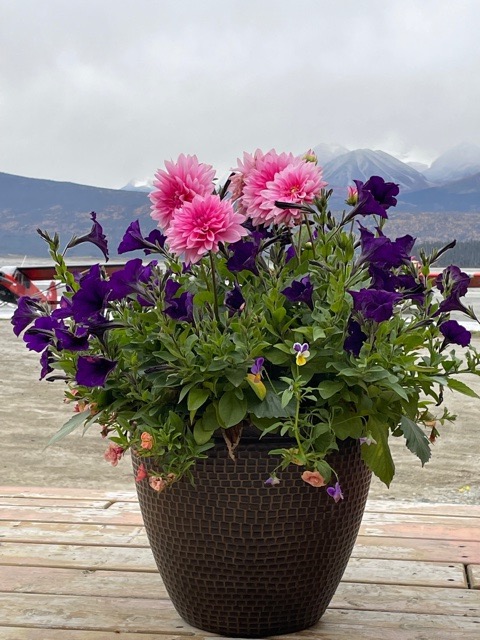
I’m sure that doing technical climbs to summit mountaintops and walking 30 hours UNDER a glacier to get back to civilization is incredibly difficult but after listening to Donna describe what it’s like to garden at the edge of the world, I suspect that gardening must rank among her greatest accomplishments.
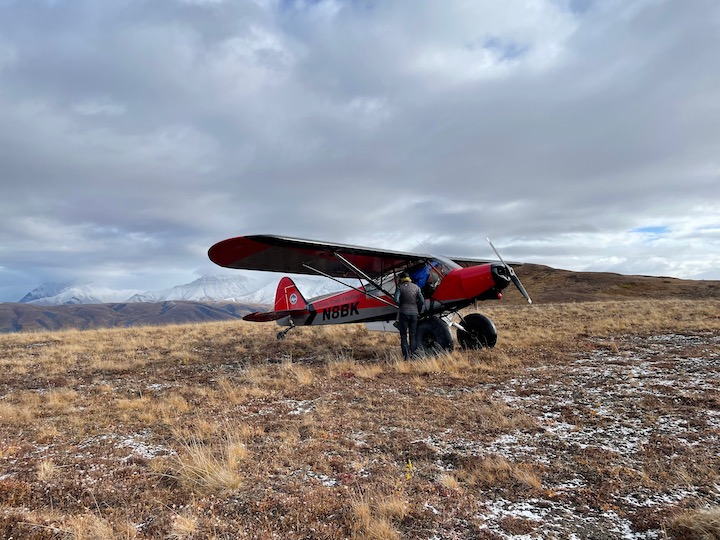
Imagine this: Temperatures that can dip as low as 78 degrees BELOW zero. Trying to garden in a place where every single bit of equipment, from the trowels to the seeds to the bulldozers, have to be brought in by plane. Months of wind and dust that can leave 1/8 to 1/4 an inch of silt on every surface every day. Seeing “terminator dust,” the first snows on the surrounding mountaintops that signal that winter is just around the corner. And then composting everything. Everything. She starts the garden from scratch every year since nothing survives the winters. Let me hasten to add that Donna’s garden is not small. She says that every year she plants approximately 20,000 plants in pots and beds.
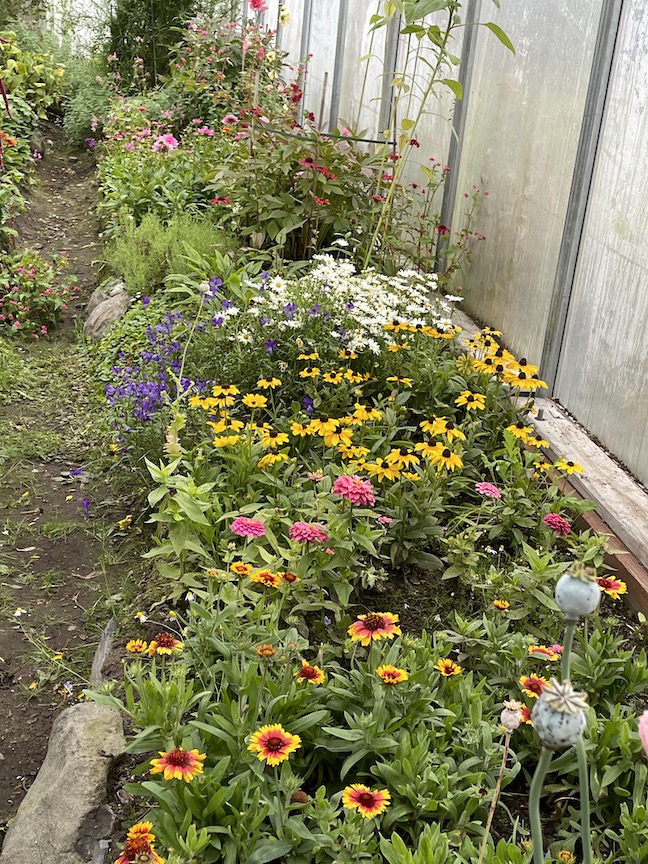
Along with the many challenges, though, Donna does have a few advantages. For one thing, she gets amazingly rich topsoil straight from the mountainside behind the lodge. And she has sunshine. Lots and lots and lots of sunshine during the summer. She says that the rate of growth is astonishing. Things will double in size overnight.
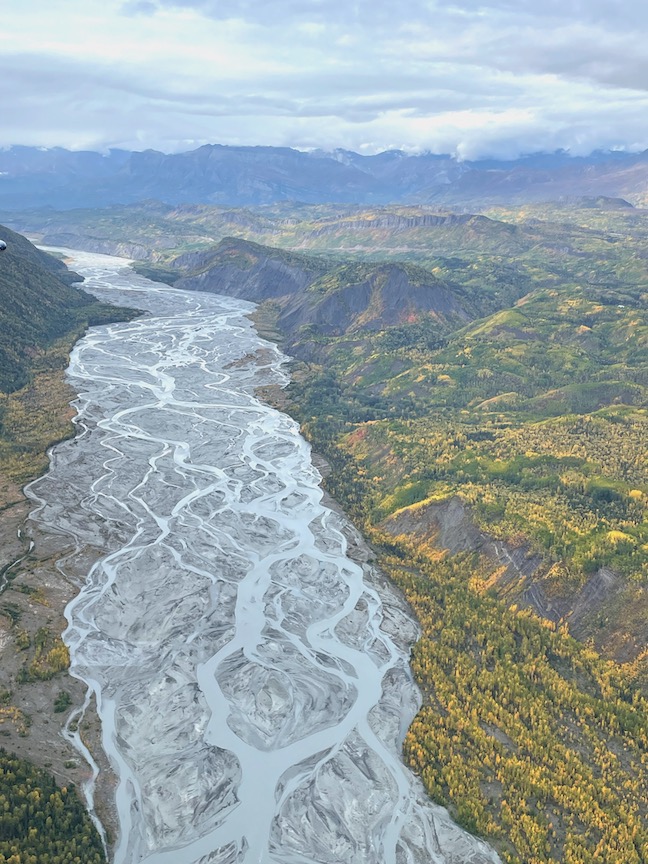
Being in Alaska and talking to Donna about gardening was a surreal experience because everything was so different and somehow seemed magnified many times over. It is not a place where I could live or garden for I don’t have the skills for either one. But as different as Donna and I are, we found instant companionship and friendship based on our shared love of digging in the dirt. And this is why I garden, not only to plant things that are beautiful but because I love being part of a community of people with this shared passion, wherever their dirt might be.

And then there was Erica, on the Alcan, whose love of wildflowers made the connection between her and our mother even as gardens made such a connection between you and Donna.
What I mean to say is, time and geography and a love of beauty and of nature coalesce.
The stunning beauty of the Alaskan wilderness and the miracle that Donna can grow flowers in abundance there is so inspiring. Thank you for your sharing that.